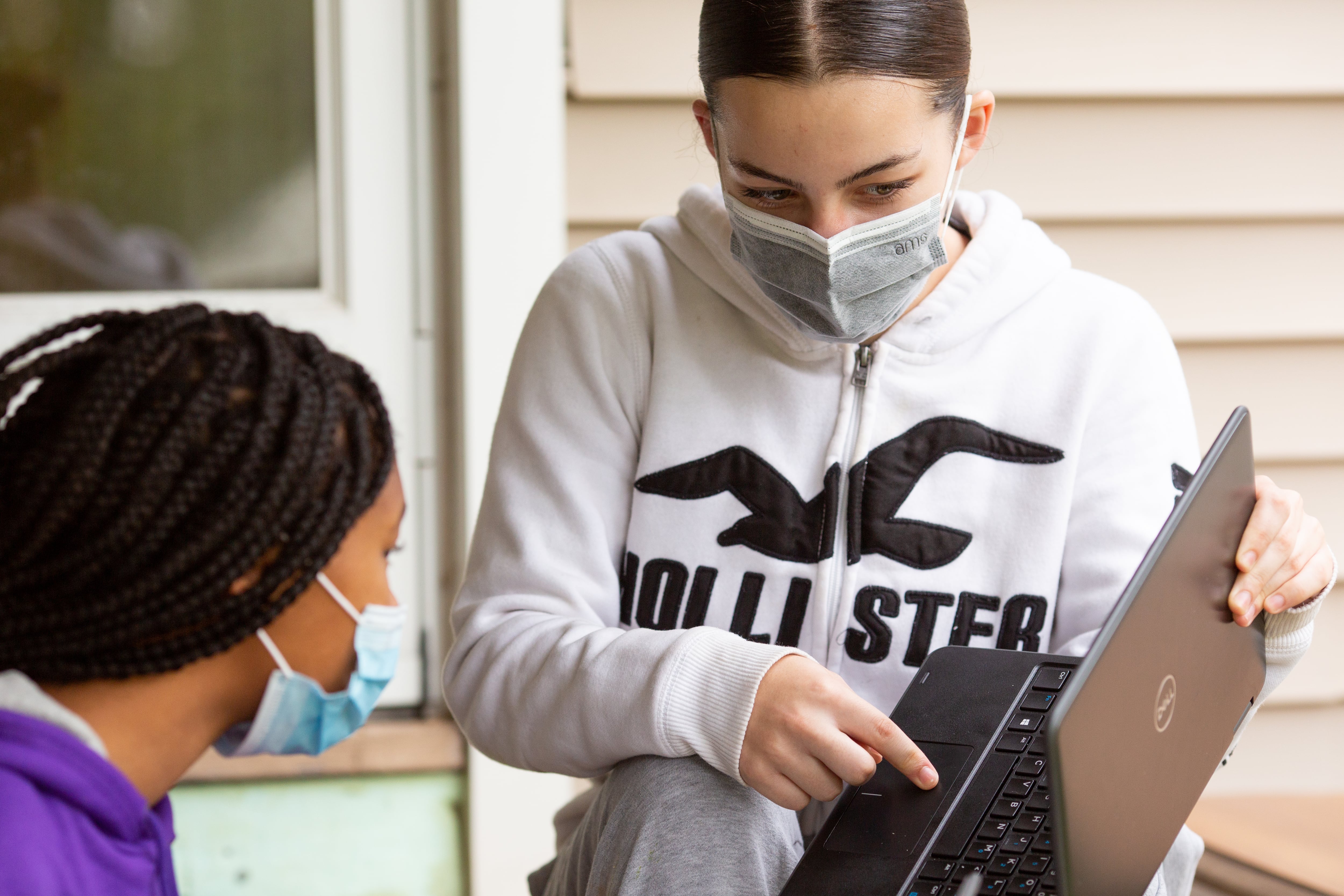For the first time in more than a year, Indianapolis Public Schools will reopen its middle and high schools for full-time, in-person learning.
Citing new data and guidance from the Marion County Health Department, Superintendent Aleesia Johnson on Friday announced the expanded reopening, set for April 5. That means that older students will be able to go from learning on campus two days a week to full time, once they return from spring break. The district initially opened elementary schools full time in October.
IPS and health officials did not say what exactly had changed to enable campuses to reopen fully. At school, Johnson said, students and staff must stay at least 3 feet away from anyone and wear masks. She said the reopening also depends on rigorous contact tracing if any COVID-19 cases crop up.
“We believe we can accomplish all three of these things in order to safely welcome all students back in person who select that option,” Johnson said.
The seven-day average test positivity rate for Marion County has decreased to 2.9%. In January, the rate was as high as about 15%.
The district’s website states that innovation schools may reopen on a different schedule.
Other Indianapolis school districts, including Perry Township and Lawrence Township, are reopening high schools for four days a week of in-person learning.
Data indicates that the rate of coronavirus transmission at schools has been low. According to the Marion County Health Department, fewer than 2% of county schools in the past two weeks have had any COVID counts at all or rates high enough to warrant the county to intervene. That could involve an inspection, talking to school officials, and working with schools on their prevention methods.
District parents who have children currently learning remotely may switch to in-person learning by contacting their school by March 12. Those who wish to change from in-person to remote learning may do so whenever they want.
Last week, teachers became eligible for the COVID-19 vaccines at select pharmacies, under a new federal directive. IPS strongly recommends teachers be vaccinated. In January, teacher unions called for state officials to prioritize vaccinating teachers so that schools could stay open. The state did not bump up teachers in priority.
Last March, Gov. Eric Holcomb shut down all Indiana schools to try to slow the spread of the coronavirus. While many Indiana schools opened in person at the beginning of the current school year, IPS started remotely and two weeks later than usual. The district also suspended in-person learning for several weeks in the winter when cases spiked.
In January, Dr. Virginia Caine, Marion County’s health director, relaxed rules for closing school districts. Since then, coronavirus positivity rates can close schools, rather than entire districts.





